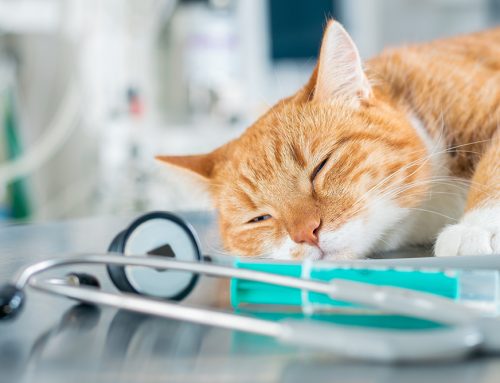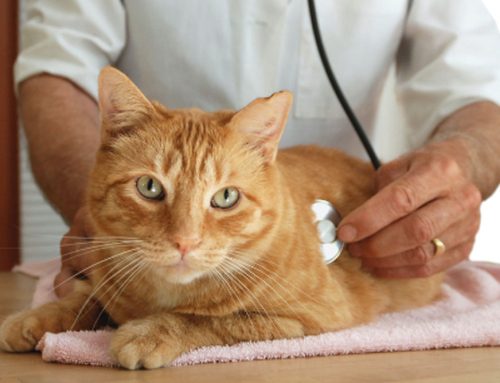A recent report by the Midwest Center for Investigative Reporting and USA Today alleges that Seresto flea and tick collars have harmed many of the dogs and cats that wear them as well as the owners who love them. The US Environmental Protection Agency (EPA), which regulates pesticide-containing products, has received 75,000 incident reports of dogs, cats, and people allegedly being harmed by the collars, including 1698 pet deaths and just under 1000 incidents involving people. As of now, there is no established link between these harmful events and the active ingredients in Seresto.
DVM360 reports: ‘According to a 2019 EPA memo, symptoms in humans related to these incidents vary widely, with most involving skin rashes or lesions; numbness, tingling, or pain; and nasal, ocular, or throat irritation after placing the collar on the pet, after nuzzling with the pet, or after sleeping in bed with the pet. More serious events were also reported. In many cases, symptoms improved after the collar was removed.’
Elanco spokesperson Keri McGrath reports that, if adverse effects are seen, they are typically limited to erythema (redness) and hair loss below the collar. Per Ms. McGrath, the signs of harm related to Seresto collars in dogs and cats are unclear. The reported pet deaths appear to have been sudden. She states that Elanco (the manufacturer) takes the safety of their products very seriously and thoroughly investigates potential concerns related to their use. McGrath also points out the presence of counterfeit Seresto collars available for purchase on-line. (We have seen those first-hand). Online products are often touted as being less expensive versions of those sold in veterinary hospitals. Sadly, that is often not the case. Not only are counterfeits very difficult to identify but they have the potential to be harmful to both pets and their owners. That is why manufacturers typically restrict their product guarantees and support to those sold through licensed veterinarians. How many of the reported harmful events are associated with counterfeit collars is unknown.
Since its initial approval in 2012, Seresto has protected more than 25 million US pets from fleas and ticks. At Livonia Veterinary Hospital we have sold 162 Seresto collars since May 2018. We have seen only occasional, mild reactions to it- typically skin sensitivities that quickly resolve once the collar is removed. During that same period, we have treated a number of cases of clinical Lyme Disease, and, unfortunately, have had several young, previously healthy, dogs develop irreversible Lyme-associated kidney disease and die.
In addition to Lyme, fleas and ticks carry diseases such as Tapeworm, Cat Scratch Fever, Rocky Mountain Spotted Fever, and Tropical Canine Pancytopenia. (The prevalence of these diseases is increasing at alarming rates in this area). It is not unusual for blood loss anemia in young animals secondary to flea infestations to result in death. All manner of skin infections, allergic reactions and dermatitis are associated with fleas. At Livonia Veterinary Hospital we see flea and tick related illness on a regular basis. While some of the sequelae to these parasite infestations are mild, we are seeing a significant number of serious and even fatal outcomes (most notably, kidney failure and death associated with Lyme disease in dogs).
A lot to think about!
What we know:
- In addition to the skin problems they cause, fleas and ticks carry potentially fatal diseases.
- Seresto Collars have been a big part of beating back emerging flea/tick-borne diseases in pets since 2012.
- Recently, concerns have been raised about the potential safety of these collars.
- The manufacturer (Elanco) is working hard to sort through the reports of harmful events
What we do not know:
- Is there an actual connection between the reported harmful events and the Seresto collars? On one hand, the presence of a Seresto collar on a pet when a harmful event occurs does not mean the collar necessarily caused it. on the other hand, if there is a link, it needs to be identified ASAP and appropriate measures taken.
- How big an issue are counterfeit collars? They are very difficult to identify.
What we recommend:
- If you have used Seresto collars before and been happy with them (they work very well, especially for ticks), we feel there is insufficient evidence at this time to advise you to stop. Several veterinarians and veterinary technicians in this hospital have used them for years and will continue to do so.
- Be a smart shopper. Counterfeits are common. There is always a bargain to be had online but the ultimate expense might be higher than you think. Products purchased from veterinary hospitals are fully guaranteed and supported by their manufacturers. That is very often not the case with products purchased online.
- If you have questions or concerns about your particular situation, ask us. We have a number of flea/tick products that we feel work well. We also have the expertise to tailor a flea/tick prevention program to your specific needs.
A final note:
Our veterinarians have thoroughly examined the information available pertaining to the Seresto collar. This includes reviewing studies available evaluating the safety of the collar’s active ingredients. After weighing the pros and cons, our current opinion is that the removal of this very effective and, in our experience, safe, tool from our armamentarium for prevention of a number of potentially fatal flea/tick borne diseases is not indicated.
(the Seresto collar stays… for now).
However, we will continue to monitor the ongoing research associated with this product. Should the situation change, we will let you know right away. Our doctors regularly review the most complete and current available data in making decisions for the products we offer.
As pet owners and care givers, we are all responsible for the health and wellbeing of our furry friends. At this hospital, we take that job very seriously.






Leave A Comment